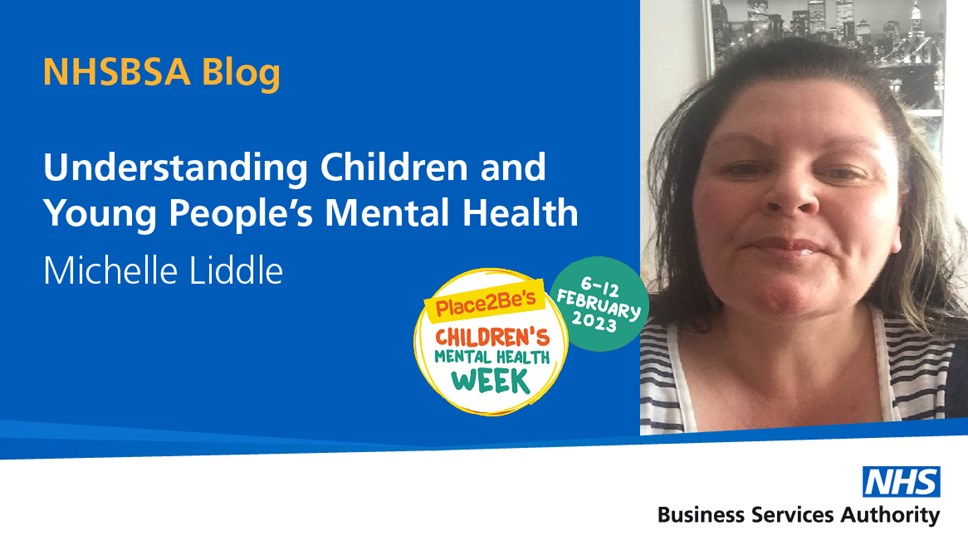
Children's Mental Health Week - Understanding Children and Young People's Mental Health
This week marks Children’s Mental Health week, a week dedicated to raising the awareness of children and young people’s mental health and the importance of talking about their mental health and wellbeing, and the support available to them.
The NHS Business Services Authority (NHSBSA) has a team of Mental Health First Aiders (MHFA) that have undertaken training accredited by Mental Health First Aid England, and are equipped to support colleagues across the organisation and their mental health.
This year, the MHFA network is supporting Children’s Mental Health Week by highlighting the support available for children and young people who are struggling with their mental health. Whether you’re a parent or guardian, grandparent, aunt, uncle, sibling, carer, or family friend, many of us know and care for children. We recognise the impact it can have on colleagues who are worried about a child or young person who is experiencing a mental health condition.
To support this campaign, one of our MHFAs, Michelle Liddle, shares her knowledge and understanding of children and young people’s mental health, and some of the key ways we can help support.
Hi, my name is Michelle Liddle. I work in the Service Integration and Management (SIAM) Team as a SIAM Analyst which is part of the Digital, Data and Technology Department. I have worked for the NHSBSA for 35 years and became a Mental Health First Aider in 2019.
I have recently gained a Level 2 Certificate for the course I undertook which was ‘Understanding Children and Young People’s Mental Health’. As a MHFA, I am extremely aware of the issues that adults can experience with their mental health, what I did not appreciate until I took this course is that children can experience issues with their own mental health in the same way an adult can. As an example, one of the statistics states that globally, one in seven 10–19-year-olds experience a mental disorder.
As an adult, experiencing a mental health issue can be very frightening and distressing so I can’t even begin to imagine how frightened and distressed a child must feel when they suffer from a mental health issue. The consequences of failing to address a child’s mental health issue can extend to adulthood, it can impact both their physical and mental health and prevent them from leading a fulfilled life.
For a parent or for anyone who has parental responsibility, here are some of the key ways you can help:
- Encourage them to talk to you, show that you are willing to listen to what they have to say, and always respect them. Positive and supportive relationships are important for the wellbeing and resilience of our young people.
- Never blame a child if they have a mental health issue and/or yourself. Don’t feel ashamed or embarrassed. There are situations in life that we have no control over which can impact a child’s mental health.
- Don’t be afraid to ask for help for the young person. You can reach out to a child’s school and make them aware of the situation and request support
- Please access support for yourself or your wider family. When a child experiences a mental health issue it can also have an adverse effect on the people around them.
Further information and signposting
There are a number of organisations and charities which provide further information and support to parents or carers of children and young people who are experiencing mental health difficulties. Some of these include:
- Their GP who will be able to offer support and make a referral or sign-post to their local Children and Young People’s mental health services (CYPMHS)
- The NHS website has information on Mental Health for children, teenagers, and young adults
- Kooth – a free and anonymous online mental wellbeing community, accredited by the British Association for Counselling and Psychotherapy
- Papyrus – provides confidential advice for young people who feel like they want to take their own life
- YoungMinds – provides support to young people, parents and anyone working with young people.
- Mermaids – supports transgender, nonbinary and gender-diverse children and young people as well as their families
